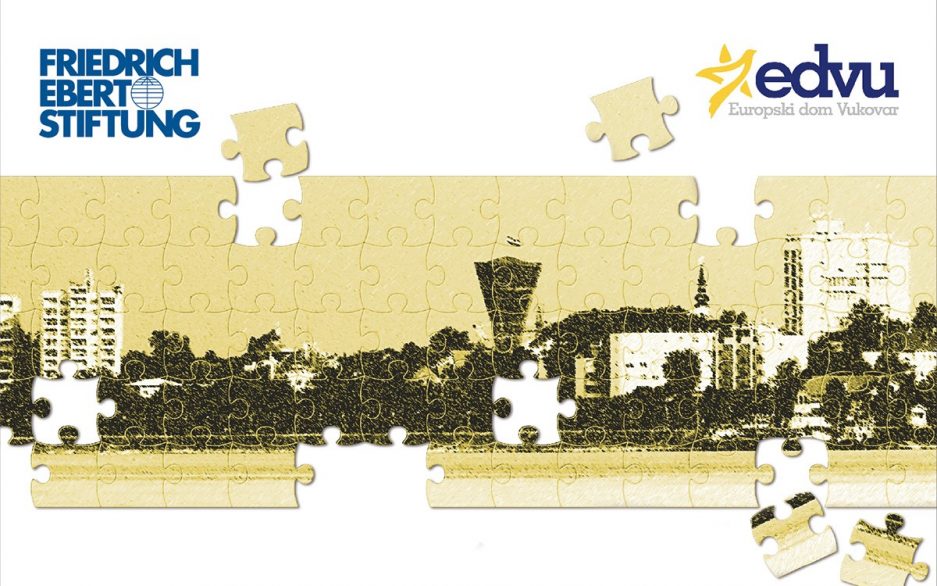“Peaceful reintegration – uninvited guest” seminar organized

On the occasion of the Day of Peaceful Reintegration of the Croatian Danube Region, organized by the Friedrich Ebert Foundation and the Europe House Vukovar, an online seminar entitled “PEACEFUL REINTEGRATION – UNINVITED GUEST: The process of peaceful reintegration of the Croatian Danube region in school education” was held on January 15, 2021. The seminar was attended by Blanka Smoljan from the Friedrich Ebert Foundation, Dijana Antunović Lazić from the Europe House Vukovar, Tena Banjeglav from Documenta – Center for Dealing with the Past and Nikica Torbica from Dkolektiv: Organization for Social Development. The seminar was moderated by Dr. Lana Mayer from the Europe House Vukovar.
One of the most significant segments of recent Croatian history, the process of peaceful reintegration, has been largely neglected in public space, which is especially noticeable in the school system and education. In response to an obvious problem, a brochure with teaching materials on peaceful reintegration was presented during the seminar. Furthermore, the structure and content of the material were discussed, as well as the ways of its adaptation and use in teaching with young pupils. Emphasis was placed on the importance of using personal memories as working material, presented to us by Tena Banjeglav from Documenta. On the other hand, the presented brochure offers opportunities to involve students in the process of creating materials that would serve as a basis for further work on the topic of peaceful reintegration, but also on the topic of peacekeeping in general. In this regard, Nikica Torbica spoke about the importance of interactive involvement of young people through the process of learning about peaceful reintegration. The participants of the seminar also touched on the compulsory field classes of eighth grade students in Vukovar, expressing their concern about the content and implementation of the activity itself and the organizers’ focus on war topics and violence. Therefore, the importance of connecting the current situation in Vukovar and Eastern Slavonia with the process of peaceful reintegration, as well as the war period, was emphasized, which would provide a critical view of the process itself and its consequences.
After the presentation, a very active and comprehensive discussion took place among the participants. It was concluded that teachers in general do not address the topic of peaceful reintegration, or they just mention it by the way. But many of them, motivated by the result of this seminar and the materials presented, are determined to devote more time and attention to it. Also, one of the conclusions pointed to the over-representation of topics related to war and violence, compared to small number of those dealing with peace processes and initiatives. Consequently, there is the possibility of localizing this extensive and complex topic, by emphasizing the importance of linking the narrative of peaceful reintegration with local peace movements. Teachers also suggested that the topic of peaceful reintegration and existing materials should be presented at one of the next symposiums on the Croatian war of Independence, in order to learn more.
After a very motivating and stimulating seminar, all participants hope to continue discussions and work on such and similar topics, as well as on new materials that will be useful to teachers and their students in mastering the topic of peaceful reintegration and the role of peacekeeping during the Croatian war of Independence.









